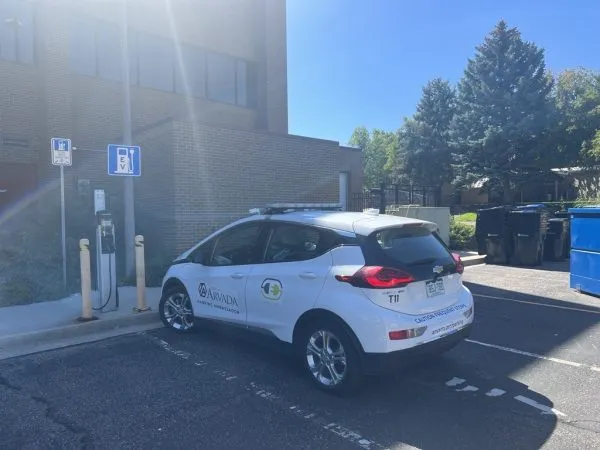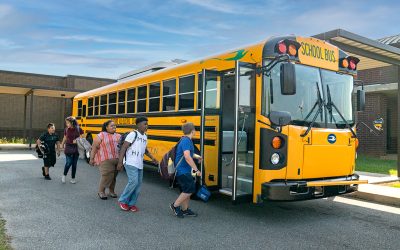Location: Arvada, CO
Fleet Type: Local Government
Narrative
The City of Arvada, nestled within the front range urban corridor, is an integral part of the growing Denver Metropolitan Area. Its commitment to embracing electric vehicles (EVs) is evident as the city continues to see increased EV adoption. The municipality is actively pursuing EVs into both its on-road and off-road fleet, highlighting its dedication to sustainable transportation solutions.
Arvada currently manages a diverse fleet of more than 600 vehicles, including both on-road and off-road assets. The city’s commitment to sustainability led to the recent addition of five all-electric John Deere Gators. In 2022, Arvada made fleet electrification a top priority. The city participated in Xcel Energy’s Fleet Electrification Advisory Program, utilizing Sawatch Lab’s telematic data collection to analyze 150 on-road vehicles. Based on the findings, roughly 30 vehicles were identified as suitable for immediate electrification. Arvada plans to pursue funding opportunities to electrify a portion of the vehicles identified in the analysis.
Furthermore, Arvada is actively developing its electrification plan, aiming to finalize it in 2024. In terms of charging infrastructure, the city secured funding from Colorado’s Fleet-ZERO grant program for installing 18 Level 2 charging ports across three of its facilities. Additionally, Arvada received funding for seven charging ports through the Charge Ahead Colorado grant program. Currently, the city operates ten public ChargePoint chargers – eight at the Transit Hub and two at City Hall. Looking ahead, Arvada is exploring depot charging options and collaborating with Xcel Energy to prepare for future EV deployments in the coming years.
Outputs and Outcomes
So far, Arvada has introduced two Chevy Bolt EVs into its fleet. One is designated for motor pool services, while the other is utilized for parking enforcement duties. These EVs have proven to be reliable and ideal for their respective roles especially on shorter routes and during periods of high idle times for the parking enforcement vehicle. Additionally, Arvada has 32 hybrid vehicles in its fleet used in various departments, 19 of which are Police Utility Interceptors. The city plans to leverage data from these EVs and insights from its electrification plan to position itself for future funding opportunities, paving the way for further integration of electric fleet vehicles.
Best Practices & Lessons Learned
- Vehicle procurement has become a challenging and time-consuming task due to market and supply chain constraints, particularly for local governments aiming to acquire electric or hybrid vehicles.
- EV costs are incrementally higher than gas or diesel vehicles. Therefore, securing funding for these vehicles, through grants and other incentives, is imperative for adoption.
- In the evaluation of vehicle performance and strategic planning for future EV procurement, incorporating driver feedback is essential. Drivers’ insights provide valuable perspectives for enhancing efficiency and user satisfaction.
- Working with Xcel and Sawatch Labs has given the city tremendous insights on suitable EV replacements and optimal charging locations. This information will enable Arvada to plan effectively for future stages of electrification.





